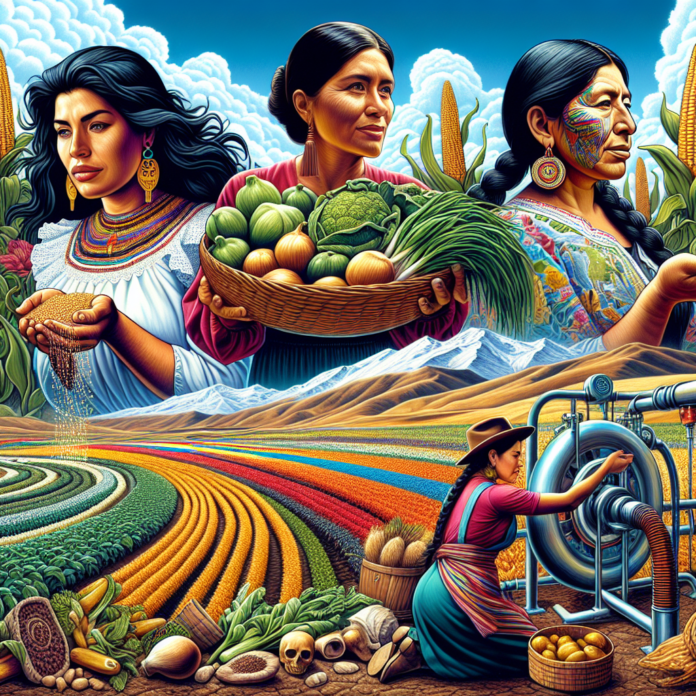Latin Women Champion Climate Action Through Indigenous Farming
“`html
Latin Women Pioneering the Battle Against Climate Change Through Indigenous Agricultural Practices
In the face of escalating climate challenges, Latin American women are emerging as vital leaders in the fight against environmental degradation, harnessing the wisdom of indigenous agricultural techniques. These women are not only advocating for sustainable farming methods but also championing the preservation of their cultural heritage, which is deeply intertwined with the land.
The Role of Indigenous Agriculture
Indigenous agricultural practices have long been recognized for their sustainability and resilience. These methods often emphasize biodiversity, crop rotation, and natural pest control, fostering ecosystems that are better equipped to withstand climate fluctuations. Women in rural communities play a crucial role in maintaining these practices, passing down knowledge through generations while adapting to modern challenges.
Empowering Women Through Leadership
Women leaders in agriculture are increasingly stepping into roles that influence policy and drive community initiatives. Organizations across Latin America are supporting these women through training programs and workshops that enhance their skills in sustainable farming, advocacy, and business management. By empowering women, communities not only improve food security but also enhance their capacity to respond to climate change.
Building Resilient Communities
The work of these women extends beyond agriculture. They are actively engaged in climate advocacy, organizing local initiatives that address environmental issues. By promoting agroecology, they contribute to the restoration of degraded lands and the improvement of local ecosystems. Their efforts are crucial for building resilience against climate impacts, ensuring that future generations can thrive.
Collaborative Efforts and Global Recognition
The global community is beginning to recognize the importance of women in agriculture and their role in climate action. Collaborative projects between governments, NGOs, and indigenous organizations are facilitating knowledge exchange and providing resources to these leaders. This recognition not only empowers local women but also highlights the need for inclusive policies that consider the voices of women in environmental decision-making processes.
Conclusion
Latin women are at the forefront of the fight against climate change, utilizing indigenous agricultural practices to promote sustainability and resilience in their communities. Their leadership is essential not only for the preservation of their cultures but also for the health of the planet. As they continue to innovate and advocate for change, their contributions will be vital in shaping a more sustainable future.
“`
